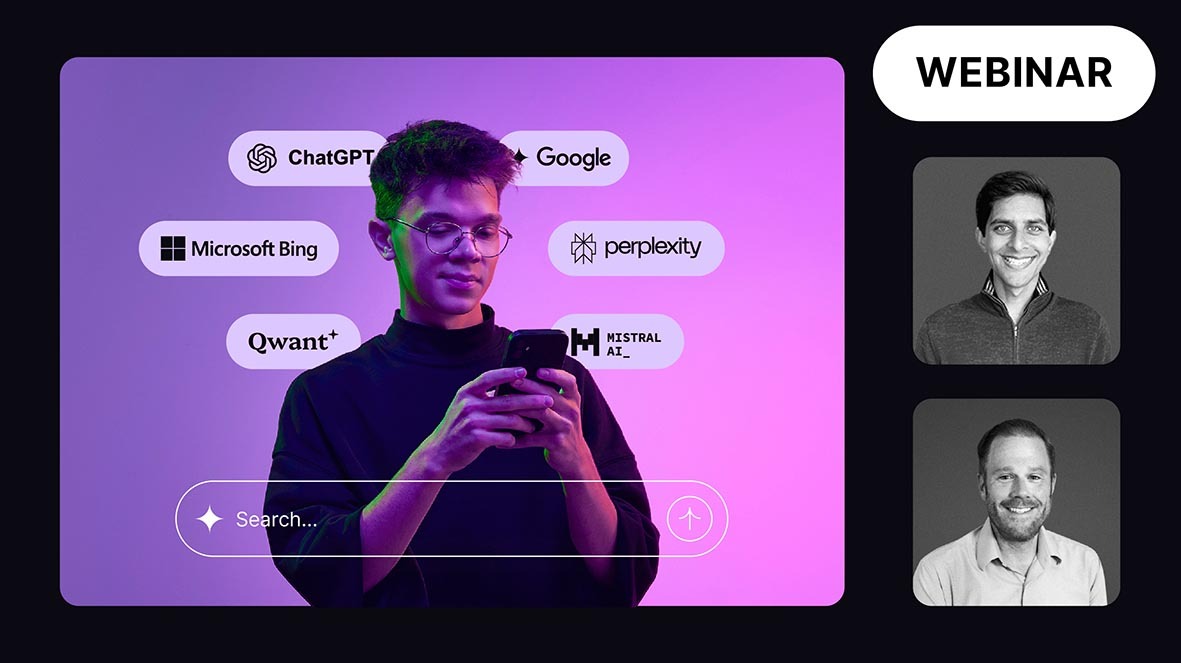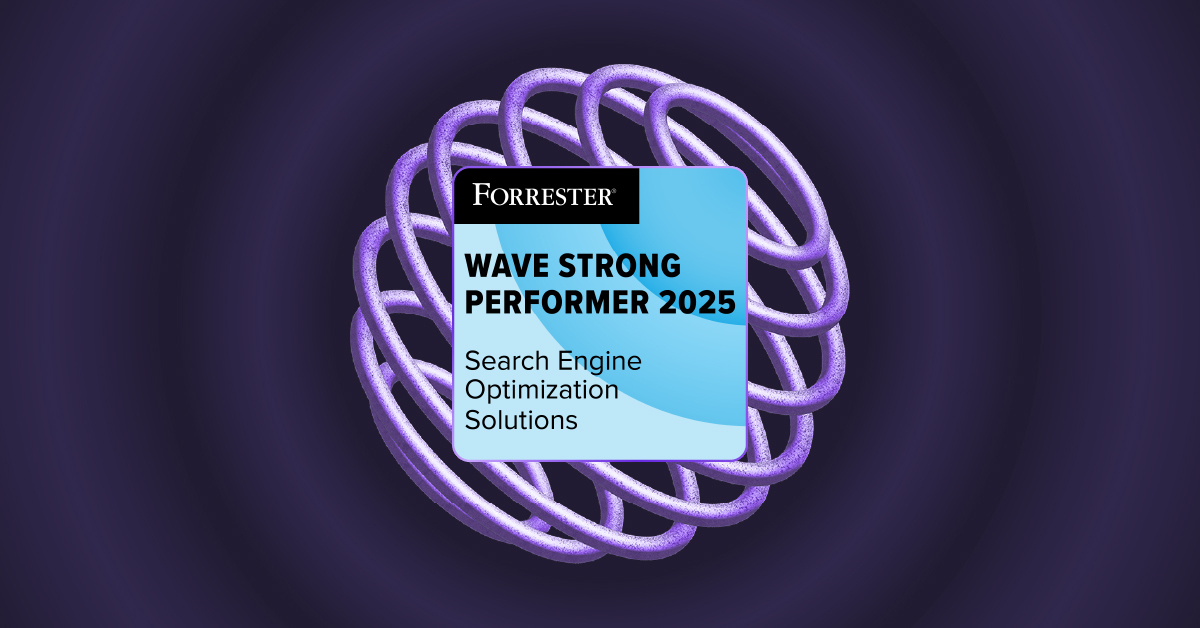Back to learn seo
The AI Search Revolution: How to Optimize for Meta AI
.jpg)
The search industry has entered an exciting new era as AI transforms how consumers search for products and services online. Beyond traditional keyword-based searches, consumers now have the opportunity to engage in natural conversations with AI-powered search engines, opening up richer, more meaningful ways for brands to connect with their audiences.
The landscape is changing and evolving at a rapid pace, but don’t fret! At Botify, we help brands thrive in the new era of search. In this article, we’ll take a look at one of the most promising opportunities in this new era: Meta AI. We’ll take a closer look at how they’re building their own index and what it means for your visibility strategy.
Introducing Meta AI
Meta's entry into the search landscape represents a game-changing opportunity for brands and retailers. By building their own AI-based search engine to power conversational answers across WhatsApp, Instagram, and Facebook, Meta is creating a new way for brands to be discovered exactly where consumers are already engaging with their products and services.
While currently relying on Bing for answers about news, stocks, and sports across its platforms, Meta is developing its own web crawler to provide AI-powered, conversational answers to users' queries.
Why should you care? Meta’s wealth of user data spanning almost two decades allows them to personalize their messages to their users to a greater extent than most of their competitors. Their unique ability to provide answers within natural user conversations offers brands a plethora of opportunities to connect and engage with consumers where they are, while matching their mindset – whether discussing products on WhatsApp, discovering items on Instagram, seeking recommendations on Facebook or ready to purchase a product. This type of contextual integration means your brand can reach potential customers at every step of the journey.
As search expands beyond Google, multiple AI bots now crawl websites to power their responses, Meta being one of them. And as it often goes in the world of search, for brands to seize this opportunity, their content must first be discovered.
How to Optimize for Meta AI
As Meta AI builds its own index, brands face a clear challenge: ensuring their content is discoverable across an expanding search ecosystem. Beneath the AI revolution lies the unchanging truth: if you're not crawled, you're not found. This principle, true since Google's early days, remains fundamental as Meta AI builds its index
Once Meta’s crawler is able to find you, the great news is that you already have the data you need to succeed. Two decades of Google search data have revealed how consumers ask about your brand and products. These same intentions now fuel AI conversations. By ensuring your content is properly indexed, understanding the full scope of user intent, and making your content easily discoverable for both traditional and AI crawlers, you're not just optimizing for current search – you're future-proofing your visibility strategy.
Let's explore how to make this happen.
1. Mine Your Search Data for AI Success
Today's Google searches reveal tomorrow's AI conversations. The questions users ask Google about your brand and products are the same questions they'll ask Meta AI. The difference? AI will deliver answers through natural conversations rather than a list of links. And thus, understanding user intent is more important than ever.
The challenge lies in accessing this valuable data at scale. Google Search Console's standard interface limits your view to a fraction of your search data, making it difficult to fully grasp how users seek your content. Botify’s RealKeywords feature solves this by exporting your complete search history, bypassing sampling limitations to reveal the full scope of user intent.
Here's how to transform your search data into actionable AI-ready insights:
1. Analyze Question Patterns
- Identify question-based queries (how, what, why, where, when), something made easy with Botify’s ready to use Keyword Group.
- Group similar questions to understand common user pain points
- Compare how customers describe your products versus your website's terminology (e.g., users might search for "noise blocking headphones" while your site uses "active noise cancellation")
- Pay special attention to queries that start conversations (e.g., "best [product] for...") as these typically lead to follow-up questions in AI chats
2. Spot Content Opportunities
- Look for high-volume questions with low click-through rates - analyze queries that drive impressions but few clicks
- Identify queries where competitors appear above you in search results for your strategic keywords
- Discover seasonal trends in how users research your products
3. Optimize Content Strategy
- Create content that directly answers the questions you found in your analysis
- Structure information to match the natural flow of user inquiries
- Include complete product information that answers anticipated follow-up questions
- Ensure your content addresses the full spectrum of user questions
2. Ensure Multi-Platform Visibility
While understanding user intent is instrumental, your content needs to be discovered first. In today's AI search landscape, this means being visible across multiple platforms. To discover valuable content to train their LLM and surface in conversations, Meta AI has developed a dual approach: leveraging Bing's index while simultaneously building their own through Meta-ExternalAgent. This means brands need to ensure their content is discovered and indexed by both crawlers to maximize their visibility potential.
The challenge lies in managing indexation across different platforms efficiently. Search engines are actively looking to crawl less while needing to index more content, making it essential to help them discover and understand your most valuable pages quickly.
Here's how to optimize your indexation strategy:
1. Ensure your website is optimized for indexation
- Analyze your logs to track which pages are being indexed by Bing and Meta AI. Tools like Botify LogAnalyzer can automate this process
- Identify and fix technical barriers to indexation such as bad HTTP, slow page speed, and make sure your Robot.txt is up to date
- Monitor crawl patterns from both Bingbot and Meta-ExternalAgent through near real-time log analysis
2. Prioritize Strategic Content
- Identify your most valuable pages (revenue-driving products, key category pages, critical content) and ensure they are crawled by both Meta-ExternalAgent and Bing
- Create a clear site architecture that highlights these priority pages and ensure your internal linking structure guides crawlers to them
- Optimize and keep your sitemap up to date with your most strategic pages.
- Apply technical SEO best practices to ensure both crawlers can navigate your site seamlessly (site speed, structured data,...)
3. Deliver your freshest content to Bing Index
Botify automates indexation and optimized sitemap generation for large websites, helping your content get into top search engine indexes like Google’s and Bing’s (which informs AI engines like ChatGPT and Meta AI.) XML sitemap generation cues Google that your highest-priority content needs a recrawl automatically.
3. Optimize Technical Delivery
As Meta AI builds its index alongside traditional search engines, delivering the right experience to each bot becomes crucial. With Meta-ExternalAgent joining Bingbot in crawling your site, you need to ensure both can efficiently access and understand your content.
The challenge is particularly acute for large websites where JavaScript-heavy pages and complex navigation can slow down or block efficient crawling. When crawlers can't easily process your pages, valuable content might be missed or indexed incorrectly, affecting your visibility across all platforms.
Botify’s SpeedWorkers solution solves this by pre-rendering your pages, delivering fully rendered content to both Meta-ExternalAgent and Bingbot in under 300ms. This ensures that all your valuable content - including dynamic elements, product reviews, and pricing - is immediately visible to crawlers. Plus, by managing bot traffic separately from user traffic, you protect your infrastructure while maintaining optimal performance for both bots and users.
Don’t just take our word for it. One of our customers, a major retailer, saw the impact of Botify SpeedWorkers firsthand, achieving a 170% traffic increase year-over-year by ensuring their content was properly crawled and indexed. Another customer, an electronics retailer, doubled their indexed pages during Black Friday, resulting in 4 million additional clicks and $20 million in revenue gains.
The Future is Here
While Meta AI is still a new platform with their index being developed, the rise of their AI marks a significant shift in search. Luckily, Botify has the solutions you need to win in this new landscape. From analyzing complete search data to understanding user intent, to ensuring proper indexation through our exclusive Bing partnership, to optimizing bot crawling with SpeedWorkers, our platform helps you adapt to today's changes while preparing for tomorrow's opportunities. Ready to maximize your visibility across all platforms, including Meta AI?
Learn more about the AI revolution here and Book a demo today to see how Botify's integrated suite of solutions can transform your organic search performance.
While Meta AI is still a new platform with their index being developed, the rise of their AI marks a significant shift in search. Luckily, Botify has the solutions you need to win in this new landscape.
.svg)




.svg)

_Webinar_Banner%201%20(1).png)
.svg)
.svg)

